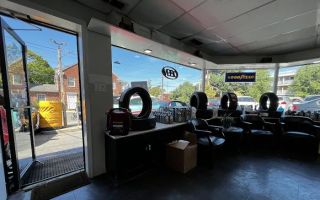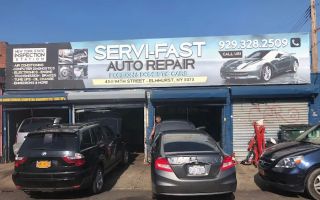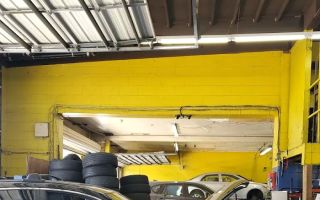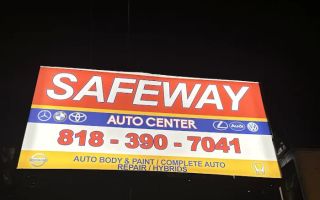What to Do When Your Brakes Stop Working: Essential Steps to Stay Safe
- Understanding Brake Failure
- Immediate Actions to Take When Your Brakes Fail
- How to Prevent Future Brake Problems
- Real-Life Emergency Case: Brake Failure on the Highway
- How to Get Professional Help When Your Brakes Fail
- Choosing the Right Towing Service for Brake Failures
Understanding Brake Failure
Brake failure is one of the most alarming car problems a driver can experience. Whether it's due to worn-out brake pads, low brake fluid, or a malfunctioning master cylinder, a brake failure can lead to catastrophic consequences if not addressed immediately.
Most vehicles have a braking system designed to handle a variety of situations, but unexpected failures can happen due to wear and tear or neglected maintenance. Knowing the signs of brake failure and how to respond can make all the difference in preventing accidents or injuries.
Immediate Actions to Take When Your Brakes Fail
When your brakes stop working, it’s crucial to stay calm and take the proper steps to regain control of the vehicle. Follow these immediate actions:

Pick Your Part - Help Yourself
1232 Blinn Ave, Wilmington, CA 90744, USA
1. Pump the Brakes
If your brake pedal feels soft or goes all the way to the floor, quickly pump the brakes. This can help build pressure in the braking system if the fluid has leaked or if there’s an air bubble in the brake lines.

Pick Your Part - Greer
13054 E Wade Hampton Blvd, Greer, SC 29651, USA
2. Downshift the Gears
If you’re driving a manual car, downshift to a lower gear. This helps slow the vehicle down using the engine’s resistance. For automatic cars, try switching to the lowest gear to achieve the same effect.
3. Use the Emergency Brake
The emergency brake (or handbrake) is your last line of defense. Gently pull the handbrake, but avoid yanking it too hard, as this can cause the wheels to lock. Gradually increase pressure to help slow the car down safely.
4. Steer to Safety
As you start to slow down, steer toward a safe area, such as the shoulder of the road or an empty parking lot. Keep your speed under control, and avoid sudden maneuvers that could cause your vehicle to lose control.
How to Prevent Future Brake Problems
While brake failure can be unexpected, regular maintenance and being aware of the signs of potential brake issues can reduce the risk. Here’s how to keep your brakes in top condition:
1. Regular Brake Inspections
Ensure that you have your brakes inspected at least once a year or every 12,000 miles. A mechanic can check for signs of wear and tear on the brake pads, rotors, and other components of the braking system.
2. Keep an Eye on Brake Fluid Levels
Low brake fluid can result in reduced braking power. Regularly check your brake fluid levels, and top them off if necessary. If the fluid appears dark or contaminated, have it replaced.
3. Replace Worn-Out Parts
Brake pads and rotors wear down over time. If your brake pads are thinner than 1/4 inch or if you hear a squealing sound when applying the brakes, it’s time for a replacement.
Real-Life Emergency Case: Brake Failure on the Highway
Let’s take a look at a real-life case where a driver experienced brake failure on a busy highway. John, a driver from New York, was on his way home after a long day at work. Suddenly, his brakes stopped working as he approached a red light. He was able to remain calm and followed the emergency procedures he had learned during defensive driving training. He pumped the brakes, downshifted to a lower gear, and safely used the emergency brake to bring his car to a halt.
Fortunately, John was able to avoid a potentially dangerous situation, but his car was towed to a local mechanic to identify the cause of the issue. It turned out that his brake fluid was low, and his brake pads had worn down significantly. This case underscores the importance of regular brake maintenance to prevent sudden brake failures.
How to Get Professional Help When Your Brakes Fail
If you experience brake failure, it’s important to get professional help as soon as possible. Here’s what you should do:
1. Call for Roadside Assistance
If you're unable to stop your vehicle safely or if you're stranded on the road, call for roadside assistance. Many services can dispatch a tow truck to your location to help you get your vehicle to a safe place.
2. Tow Your Vehicle to a Trusted Mechanic
Once your car is safely stopped, contact a towing company to transport your vehicle to a mechanic. A professional can quickly diagnose the issue and get your brakes repaired or replaced.
3. Use Emergency Brake Repair Services
In some cases, mechanics offer emergency brake repair services. They can visit your location if you’re stranded and perform a quick fix on-site. It’s a great option if you need immediate attention and can’t afford to wait for a tow.
Choosing the Right Towing Service for Brake Failures
When choosing a towing company after brake failure, consider these factors to ensure you get the best service:
1. Availability
Choose a towing company that offers 24/7 emergency services. Brake failures can happen at any time, and you want to be sure that help is available when you need it most.
2. Reputation and Reliability
Look for a towing service with a strong reputation and positive customer reviews. Reliable services like Rescue & Towing are known for their quick response times and high-quality service.
3. Professional Equipment
Ensure that the towing company uses modern, well-maintained equipment to safely transport your vehicle. A professional service will have flatbed tow trucks that minimize the risk of further damage to your car during transport.
If you’re ever in need of a reliable towing service, Rescue & Towing offers expert towing and roadside assistance for all types of emergencies. They’re ready to assist you with brake failures and any other vehicle-related issues.

























